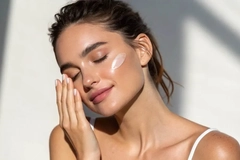Inclusive styling: New Jersey to pass bill mandating all beauty workers to be trained on textured hair
.jpg)
10 Aug 2023 --- The US state of New Jersey is expected to soon pass bill A5443/S3845, which requires training of cosmetologists, defined as hairstylists, beauticians, barbers and hair braiders, to include working on textured hair.
The new legislation is being put in place to encourage all states to adopt textured hair education as part of their curriculum and state board exams.
This bill is sponsored by New Jersey State Assemblywoman Angela McKnight and New Jersey State Senator Teresa Ruiz.
“As I said when I introduced the Crown Act, no one should be penalized for the way they wear their hair or the way it grows out of their head. This bill requiring cosmetology training to include textured hair will help stylists as well as patrons,” comments Assemblywoman Angela McKnight.
“Most schools have never taught how to care for natural hair so stylists often turn away clients with textured hair or charge a higher price. Now, stylists will not feel intimidated because of lack of know-how and patrons don't have to fear being turned away. This bill is a huge step for inclusion.”
 Requirements of the new bill will include training on working with hair with various curls, coils and wave patters; hair strand thickness; and volumes of hair.The Professional Beauty Association in conjunction with the Texture Education Collective is heading the stewardship of texture-inclusive legislation in New Jersey.
Requirements of the new bill will include training on working with hair with various curls, coils and wave patters; hair strand thickness; and volumes of hair.The Professional Beauty Association in conjunction with the Texture Education Collective is heading the stewardship of texture-inclusive legislation in New Jersey.
“Twofold” mission to cater to hair diversity
Textured hair is defined as hair that is coiled, curly or wavy.
The mission of the Texture Education Collective is “twofold.” It firstly aims to ensure all hairstylists are equipped with the education, skills and tools to be able to service all clients and all hair types and textures.
It secondly is operating to pave the way for all consumers to “feel welcomed, valued, understood and seen when getting serviced by hairstylists while upholding the highest standards in health and safety.”
The requirements shall include training on working with hair with various curls, coils and wave patterns; hair strand thickness; and volumes of hair.
Founding members of the Texture Education Collective include Aveda, DevaCurl, L'Oréal USA and Neill. Supporting partners include Avalon, BBR, Bumble and bumble, Evie Johnson, L'ANZA, Living Proof, Milady, Sam Villa and Texture vs. Race.
“The Professional Beauty Association, in partnership with the Texture Education Collective, urges supporters to sign the petition on the TEC website to include textured hair in cosmetology testing standards,” states TEC.
“Additionally, the Professional Beauty Association urges all industry professionals to encourage their state elected officials in New Jersey to pass the bills.”
Catering to all hair textures
Alongside shifts in policy, scientific advancements are continuing to expand the reach of hair solutions.
A multinational team of researchers recently discovered a “significant turning point” in the search for effective hair restoration among individuals of African descent. Their newly developed “self-navigating” hair transplant technology is based on a “skin responsiveness” technique that adapts to various hair textures, tailoring these treatments for a broader diversity of patients with increased effectiveness.
Earlier this year, scientists unveiled a new classification system that leverages optical microscopy to study “underrepresented hair textures,” helping streamline consumers’ hair care shopping experience and achieve more consistent results.
Among other developments, Californian biotech company Amyris launched 4U by Tia, a natural hair care line co-developed with Tia Mowry – actress, daytime talk show host and 4U brand founder. It featured Amyris’ “breakthrough” moisture-locking ingredient coined as a plant-based alternative to silicone in hair products.
Additionally, Procter & Gamble Beauty expanded its portfolio of brands by adding Mielle Organics, with the intention of making hair products and services for consumers with textured hair more accessible. The brand also went viral on TikTok after one of its hair oils was promoted by various influencers, leading to it selling out at US retail outlets.
By Benjamin Ferrer












